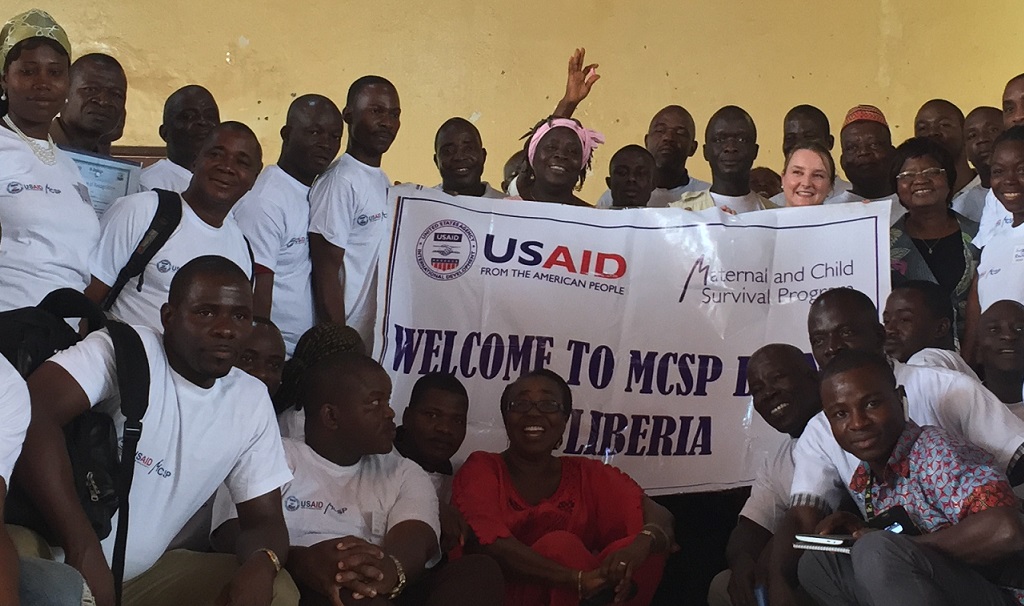“Our arms are widely open to you. We welcome you to Nimba to guide us on the path to reducing maternal and child deaths!”
These words—from a Liberian health care worker—echoed the warm feelings of many in attendance at MCSP’s fourth and final launch event in the West African country. The November 25th event brought together health care workers, partners, district and county health officers, and local authorities. Many said they had benefitted from work with MCSP partners in the past and were “thrilled” to be working with the Program in the coming year.
MCSP in Liberia aims to go beyond restoring the country’s health services, which were greatly affected by the Ebola Virus Disease (EVD) epidemic. The Program will work to improve quality of care and restore confidence in the health care system, thus increasing uptake of these improved services.
“We have to constantly ask ourselves: are we improving lives?” said Marion Subah, Technical Director for MCSP. “Through focusing on quality while we restore, MCSP will do what it can to improve the lives of women and children in Liberia.”
Denise Brandt, MCSP Chief of Party, emphasized the critical need for linkages and synergies among the many in-country partners and interventions. Participants were asked to analyze the workplan in groups and provide feedback on areas for coordination and missed opportunities. “We can no longer say that this is MCSP’s workplan; this is all of our workplan,” said a participant, after presenting his suggestions.
As Dr. Rose Jallah-Macauley eloquently summarized, to be successful, we must increase a sense of ownership among health care workers and county health teams: “It is not the first time that USAID is supporting Nimba and likely will not be the last, but today we are celebrating a project that will support you to do your work the best. We are not JSI, Save or Jhpiego, but together we are MCSP—a great team!”
She stressed the need to remember and build on lessons learned. “We need to identify what it is that we were not doing right and make it right, together as a team,” she said.
The country’s maternal mortality rate, which continues to increase, was a focus of discussion, as was the state of a health system challenged by the EVD outbreak. After the disease swept the nation in 2014 and 2015, only about 44% of health facilities were left functioning. Most essential primary care services came to a standstill, infrastructure and staffing declined, and public trust in health care facilities decreased. Tragically, with a case fatality rate of 45%, the virus also took the lives of thousands of Liberians, including nearly 200 health care workers.
With MCSP’s formal launches now over, participant feedback is informing an updated workplan, which will be further refined with each of the 61 facilities. These specific plans—in coordination with other partners and interventions—will guide us to achieving our objectives: strengthening infection prevention and control practices, and increasing service demand and utilization through restored and improved service delivery.
Stay abreast of our progress via MCSP’s e-updates, and add your voice to the conversation on Facebook and Twitter. Together, we can greatly improve the lives of Liberia’s women and children!

